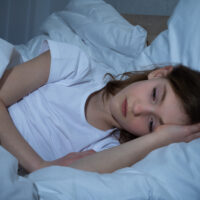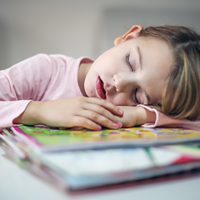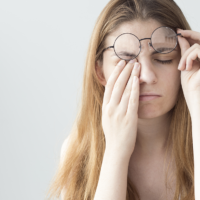Insomnia
-

Catching some zzz’s – Sleep, Sleep Hygiene, and Wellbeing
This World Sleep Day (15 March) we encourage you to explore the learning opportunities available on our website and learn more about the importance of sleep health in children and young people. Help us to raise awareness of sleep health through sharing with your networks and colleagues.
Read more -

Are some children genetically predisposed to poor sleep? A polygenic risk study in the general population
Open Access paper from the JCPP – ‘Children who are genetically predisposed to insomnia have more insomnia-like sleep problems, whereas those who are genetically predisposed to longer sleep have longer sleep duration, but are also more awake during the night in adolescence.’ Desana Kocevska (pic) et al.
Read more -

Subtyping at-risk adolescents for predicting response toward insomnia prevention program
Open Access JCPP paper – ‘Adolescents at risk for insomnia can be classified into different subgroups according to their psychological profiles, which were associated with differential responses to the insomnia prevention program.’ Si-Jing Chen et al.
Read more -

The interaction between polygenic risk and environmental influences: A direct test of the 3P model of insomnia in adolescents
Open Access paper from the JCPP – ‘This work sheds light on the complex relationship between genetic and environmental factors implicated for insomnia.’ Juan J. Madrid-Valero (pic) et al.
Read more -

Variation in sleep profiles in children with ADHD (Attention Deficit/Hyperactivity Disorder) and associated clinical characteristics
Open Access paper from the JCPP – ‘We examined the profiles of sleep difficulties in children with ADHD and associated clinical factors (e.g. co-occurring mental health conditions, stimulant use and parent mental health).’ Emma Sciberras (pic) et al.
Read more -

Sub-types of insomnia in adolescents: Insights from a quantitative/molecular twin study
Open Access paper from JCPP Advances – ‘Insomnia with short sleep duration has been postulated as more severe than that accompanied by normal/long sleep length. While the short duration subtype is considered to have greater genetic influence than the other subtype, no studies have addressed this question’. Juan J. Madrid-Valero (pic) et al.
Read more -

JCPP Editorial: Volume 64, Issue 02, February 2023
Editorial: ‘Therapies for mental health difficulties: finding the sweet spot between standardization and personalization’ by Alice M. Gregory, Martin K. Rutter, Juan J. Madrid-Valero, Sophie D. Bennett, Roz Shafran, Daniel J. Buysse.
Read more -

Editorial: Therapies for mental health difficulties: finding the sweet spot between standardization and personalization
Free Access paper from the JCPP – In this editorial, we discuss challenges and the continued need to find the sweet spot between standardization and personalization when it comes to therapies for mental health difficulties. We illustrate our discussion with reference to insomnia in adolescents/young adults as well as the chronic health condition type 1 diabetes. Alice M. Gregory (pic) et al.
Read more -

Insufficient sleep might affect children’s emotional health
Data from a new study published in the Journal of Child Psychology and Psychiatry suggest that insufficient sleep can affect emotional health in children. The study, conducted by Candice Alfano and colleagues, assessed the impact of sleep duration on different aspects of emotion in a cohort of 53 children aged 7-11 years old.
Read more -

Insufficient sleep during adolescence might pose a risk for later depression and anxiety
A new study published in the Journal of Child Psychology and Psychiatry has found that young people who have poor sleep quality and quantity might be at risk of poor mental health later in adolescence and early adulthood.
Read more